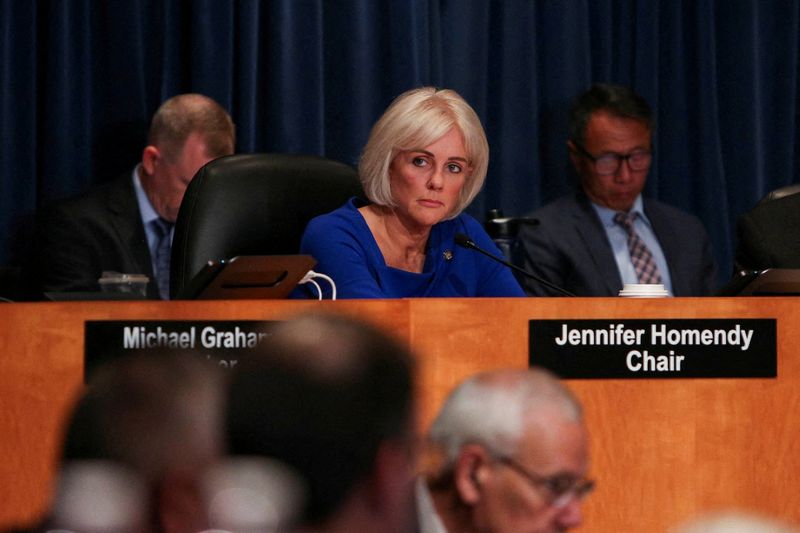NTSB chair told Boeing CEO that planemaker has safety culture problem
By David Shepardson and Tim Hepher
WASHINGTON (Reuters) -The chair of the National Transportation Safety Board told new Boeing (NYSE:BA ) Co CEO Kelly Ortberg that the planemaker "has a safety culture problem" that must be addressed.
NTSB Chair Jennifer Homendy told reporters on the sidelines of an event in Washington that she said to Boeing's new chief executive in a recent conversation the company must make changes.
"Unless they have a partnership with their workforce, a lot of these issues are not going to be fixed," Homendy said. "Right now they have a workforce that doesn't trust Boeing, that is afraid of retaliation. As long as that continues, which is really anti-aviation safety ... they're going to have problems."
Homendy said she plans to hold a longer meeting with Ortberg and travel to Renton, Washington, where Boeing builds the 737 MAX, at a later date.
Boeing did not immediately comment. She said Ortberg "listened and he said he took (this) very seriously."
The NTSB is investigating a Jan. 5 Alaska Airlines Boeing 737 MAX 9 in-flight emergency when a door panel that was missing key bolts blew out at 16,000 feet (4,880 meters).
Many issues surrounding Boeing's safety culture were raised during a two-day investigating meeting on the MAX incident last month.
She said the NTSB is requesting more information in the probe and will soon conduct a safety culture survey of Boeing. "Right now they're still in fact-finding, before they get to analysis," Homendy said of the investigation.
The head of the Federal Aviation Administration, Mike Whitaker, met last month with Ortberg and wants to ensure the planemaker follows through on its quality turnaround plan. Whitaker said he plans to head to Washington to meet with Ortberg as soon as later this month.
Ortberg, who took over on Aug. 8 as CEO, said in an employee email last month after a meeting with Whitaker company will "focus on true culture change, empowering employees to speak up when they see potential issues and bringing the right resources together to solve them."
Source: Investing.com
